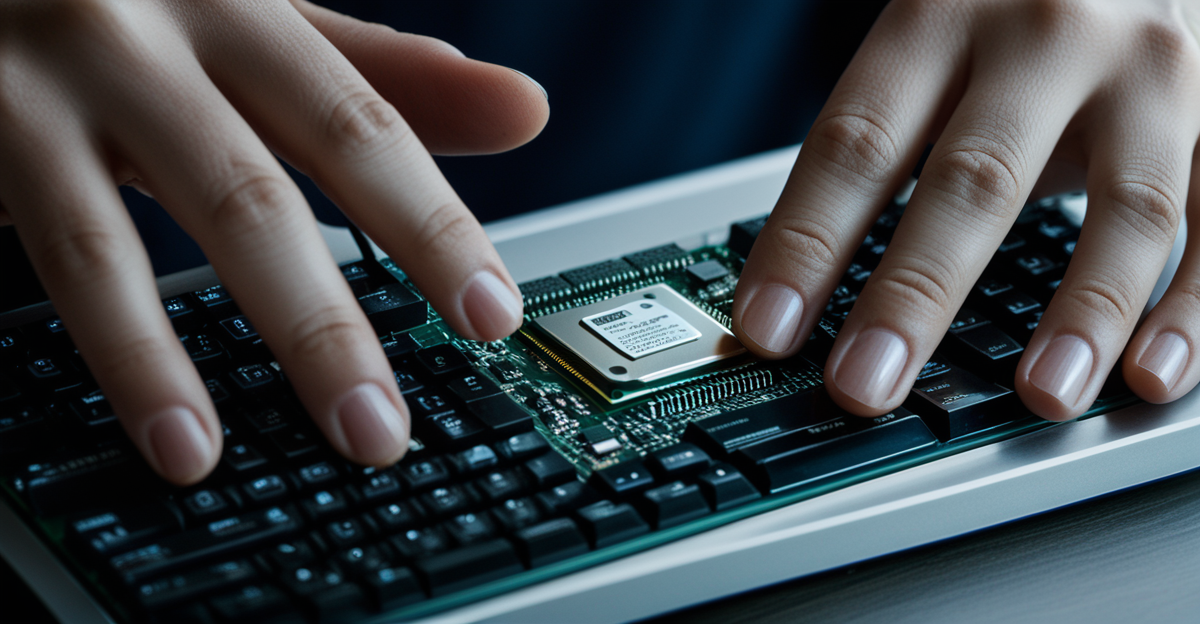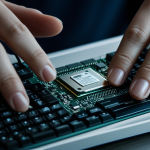Immediate effects of UK computing hardware innovations in everyday activities
UK computing hardware advancements have rapidly transformed daily life impact by embedding smarter, more efficient devices into routine activities. These innovations enhance efficiency and convenience by allowing seamless interaction with digital tools, such as responsive home assistants and advanced workplace systems. For instance, smart thermostats and lighting systems adapt automatically to user preferences, significantly reducing energy use without manual input.
Real-time access to information has become standard, with devices offering instantaneous updates, whether for work emails or weather forecasts, ensuring that users stay informed and productive. This technology integration improves decision-making both at home and in professional settings.
Have you seen this : How does UK computing hardware cater to the needs of creative professionals?
Moreover, the rise of user-friendly interfaces has broadened accessibility, making technology more intuitive and inclusive. Touchscreens, voice commands, and gesture controls reduce barriers for diverse populations, including elderly users or those with disabilities. Collectively, these improvements demonstrate the immediate and tangible benefits of UK computing hardware innovation, fostering greater connectivity and simplifying everyday interactions with technology.
Real-world applications shaping homes, healthcare, and transport
UK computing hardware plays a crucial role in transforming smart homes by enabling personalised and automated household management. Devices such as intelligent thermostats, security systems, and voice-activated assistants integrate seamlessly, allowing users to control lighting, temperature, and security remotely. This technology integration enhances convenience and energy efficiency, as these devices learn user preferences and adapt accordingly without manual intervention.
Also to see : How Can Emerging Computing Hardware Revolutionize Data Processing?
In healthcare technology, UK computing hardware innovations expedite diagnosis and patient monitoring. For example, wearable sensors collect real-time health data, allowing faster detection of abnormalities and improved chronic condition management. This immediate data access supports timely medical decisions and reduces hospital visits, profoundly impacting patient outcomes and healthcare efficiency.
UK transport innovations capitalise on smart computing systems to create intelligent transport networks. These systems optimise routes, reduce commute times, and enhance safety by monitoring traffic flow and vehicle conditions. Real-time data sharing between vehicles and infrastructure improves traffic management and supports sustainable urban mobility.
By advancing these sectors—homes, healthcare, and transport—UK computing hardware fosters improved quality of life and operational efficiency through integrated, responsive, and user-focused technology solutions.
Immediate effects of UK computing hardware innovations in everyday activities
UK computing hardware has directly influenced daily life impact by introducing smarter, more efficient devices that improve both efficiency and convenience. For example, the integration of advanced sensors and processors in household gadgets allows tasks like adjusting climate controls or managing lighting to happen automatically, without manual input. This deep technology integration reduces time spent on routine activities and lowers energy consumption simultaneously.
Another significant effect is the provision of real-time access to information and services. Whether in homes or workplaces, users benefit from instant updates through connected devices, enabling swift responses to emails, schedules, or environmental changes. This live data stream enhances productivity and awareness in everyday settings.
Furthermore, the adoption of user-friendly interfaces such as voice recognition and touchscreens has made technology more accessible to diverse users, including older adults or those with disabilities. By simplifying interactions, these interfaces encourage broader adoption and ease of use, amplifying the immediate impact of UK computing hardware innovations on daily life.
Immediate effects of UK computing hardware innovations in everyday activities
UK computing hardware advancements significantly boost daily life impact by enhancing efficiency and convenience through smarter, interconnected devices. These improvements foster deeper technology integration, where devices communicate seamlessly to automate routine tasks. For example, sensors embedded in appliances adjust operations based on environmental conditions without user intervention, saving time and energy.
Access to real-time information and services has become an everyday norm across homes and workplaces. Smart devices now provide instant updates on schedules, communications, and environmental changes, allowing users to respond promptly and maintain productivity. This live data stream supports dynamic decision-making and improves responsiveness in both personal and professional contexts.
The adoption of user-friendly interfaces such as voice commands, touchscreens, and adaptive controls significantly increases accessibility. These interfaces accommodate diverse users, including older adults and those with disabilities, by simplifying interaction and reducing frustration. As a result, technology becomes more inclusive, enabling a wider audience to benefit from UK computing hardware innovations and their immediate effects on daily life.
Immediate effects of UK computing hardware innovations in everyday activities
UK computing hardware advances have significantly boosted efficiency and convenience in daily life. Smarter devices, such as connected appliances and adaptive sensors, integrate seamlessly into homes and offices, automating routine tasks and optimizing energy usage. This technology integration reduces time spent on mundane activities and enhances comfort.
Real-time access to information is now routine, ensuring users remain updated on work demands and personal needs. For example, instant notifications and live data streams empower timely decision-making. This immediacy reflects the tangible daily life impact that UK computing hardware produces, enabling smoother workflows and informed actions across environments.
User-friendly interfaces play a crucial role in this transformation by making technology accessible to diverse populations. Touch, voice, and gesture controls break down usability barriers, inviting broader user engagement. This integration of intuitive controls supports inclusivity, allowing more people to benefit from hardware innovations without steep learning curves.
Together, these UK computing hardware developments advance the interface between humans and machines. They create environments where technology operates fluidly, enhancing daily routines and improving quality of life through practical solutions tailored for immediate effect.
Immediate effects of UK computing hardware innovations in everyday activities
UK computing hardware advancements bring significant daily life impact by improving efficiency and convenience through smarter, interconnected devices. These devices benefit from enhanced technology integration, allowing them to communicate and automate routine tasks without user intervention. For example, home systems now adjust lighting, heating, or appliance functions automatically based on sensor data, reducing energy waste and manual effort.
Real-time access to information and services is another critical effect. UK computing hardware enables instant updates in both homes and workplaces, from notifications about schedules to real-time environmental monitoring. This immediate data flow supports faster decision-making and responsiveness, helping users stay productive and informed throughout the day.
Furthermore, the widespread adoption of user-friendly interfaces—including voice commands, touchscreens, and intuitive controls—has broadened accessibility. These interfaces lower barriers for diverse populations, such as elderly users or individuals with disabilities, making technology easier to use and encouraging broader participation. This combination of smarter devices, instant data, and simplified interaction exemplifies how UK computing hardware innovations deliver measurable improvements to everyday life.





